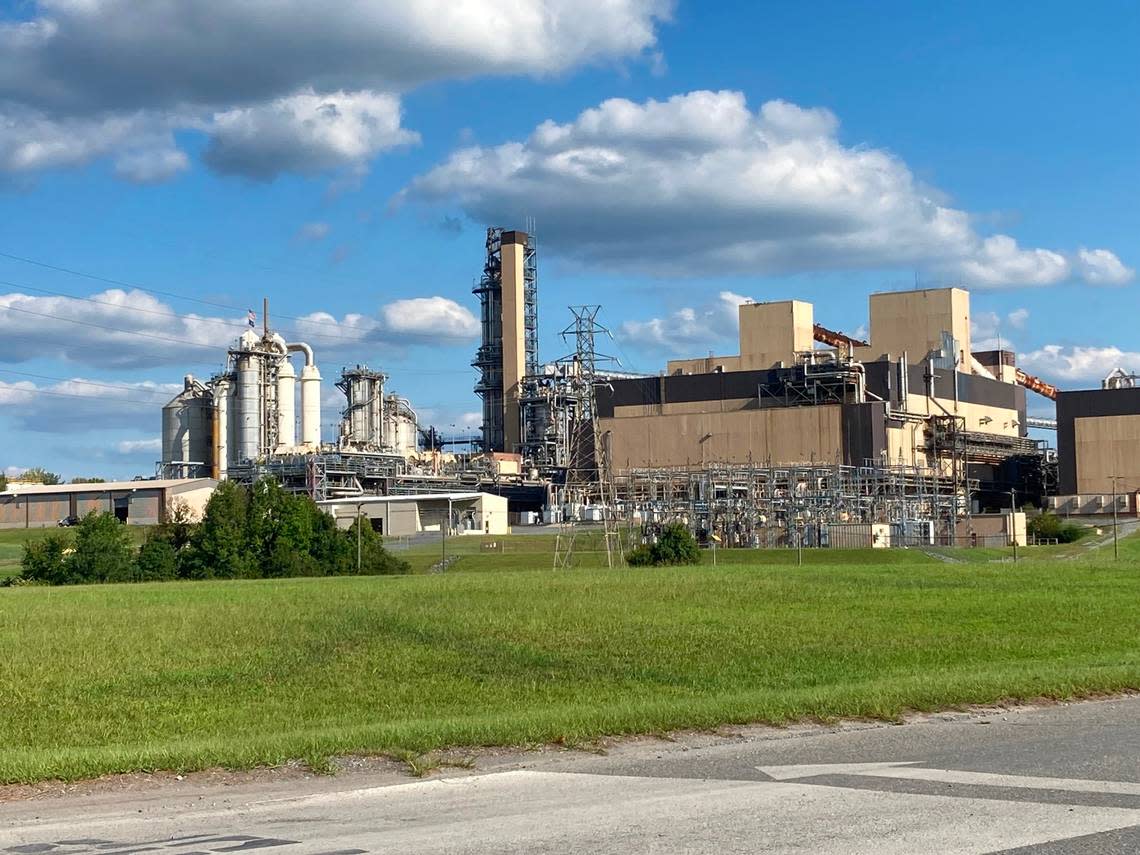Federal court signs off on $1.1 million fine against troubled SC paper mill
A federal court has approved a $1.1 million fine against a troubled South Carolina paper mill that generated nearly 50,000 odor complaints in less than two years.
The U.S. District Court’s action, announced Thursday, finalizes the fine and requirements that the New-Indy paper company improve its operation in York County south of Charlotte.
Federal officials hit New-Indy with the $1.1 million fine last December, but needed a court’s approval for it to become final. The court could have increased or decreased the fine, attorneys have said.
EPA proposes settlement with New-Indy mill over pollution, but some say it’s not enough
Critics of New-Indy say the U.S. Environmental Protection Agency fine was too light for a national corporation that should have known how to operate the paper mill without causing substantial odors.
The odors, some of which were likened to the smell of rotten eggs, have been described by the plant’s neighbors as worse than the usual smells associated with paper mills. The company says it has made progress in resolving the issues.
‘Very big problem.’ Dozens more complain of odor coming from York County, SC pulp mill
In announcing the court’s decision Thursday, the U.S. Attorney’s Office in Columbia said the fine and requirements that New-Indy ensure pollution from the plant stay within safety levels were justified.
“This is a substantial penalty that represents accountability and corrective justice under Section 303 of the Clean Air Act,” said Adair F. Boroughs, U.S. attorney for the district of South Carolina. “We are thankful for the great work of the EPA and our state partners and remain committed to protecting our communities through tough enforcement of the nation’s environmental laws.”
EPA regional administrator Daniel Blackman said the enforcement action “ensures that protection will be extended long-term.’’ New-Indy has not exceeded health standards for hydrogen sulfide releases since September 2021 because of “EPA’s swift action,’’ he said. Hydrogen sulfide produces rotten egg odors.
The court’s action this week resolves allegations that New-Indy’s factory had caused an “imminent and substantial endangerment’’ to public health and/or the environment through hydrogen sulfide releases, the U.S. Attorney’s office said. The release said New-Indy is still required to comply with operational requirements and to monitor for pollution.
Despite resolution of the hydrogen-sulfide issues, the company could face additional federal action. The EPA is continuing to investigate whether the company is obeying other environmental laws. If the agency finds “additional non-compliance’’ with federal environmental laws, the EPA could take more action, federal prosecutors said.

Attorneys who are suing New-Indy were critical Thursday of the $1.1 million fine. They said odors are continuing and the EPA needs to take stronger action. The lawyers had previously suggested the company could be fined as much as $20 million for violating clean air laws.
“This agreement is just the latest example of the EPA’s failure to put an end to New-Indy’s dangerous emissions or hold them fully accountable,’’ according to a statement from the legal team that has sued New-Indy. “Unfortunately for the thousands of people who continue to be exposed to New-Indy’s egregious pollution, this sweetheart deal will not solve the problem or force the company to come into compliance with state and federal regulations.“
The legal team suing New-Indy includes the Motley Rice firm of Charleston and the Baird Mandalas Brockstedt Federico & Cardea firm of Delaware and Maryland.
U.S. Rep. Ralph Norman, a Rock Hill Republican, had previously urged federal regulators to pick up the pace so that the fine could be finalized. Hundreds of people commented on the fine before it was made final.
New-Indy, owned partially by New England Patriots owner Robert Kraft, acquired the paper mill in 2018. The company then switched production processes and bypassed a key pollution control device, a decision blamed for causing odors beginning in early 2021. The mill, formerly operated by Bowater, was built more than 60 years ago.
The company did not respond to a request for comment Thursday. A top official with the S.C. Department of Health and Environmental Control said he was pleased with the EPA’s efforts.
DHEC has previously suggested further enforcement action could be taken against New-Indy at the state level. The department has made plenty of progress, but it is still looking for improvement at New-Indy, officials said.
“DHEC has taken significant actions requiring New Indy to address the issues that have impacted the lives of many people who live near the facility,’’ DHEC director Edward Simmer said in a statement.
Simmer said DHEC is working to amend a previous order against New-Indy that “will require the facility to take additional measures’’ beyond the EPA’s action. The measures will “further reduce undesirable levels of air contaminants,’’ his statement said.
They include a new steam stripper, the pollution control device that New-Indy stopped using and is blamed for causing many of the odors.
Much of the concerns about New-Indy have focused on odors that affected people in both Carolinas. But there also have been questions about water pollution from the plant, including cancer-causing dioxin. The company says it didn’t generate the dioxin at the site and the material has not reached the nearby Catawba River.

This story has been updated with comments from DHEC.
